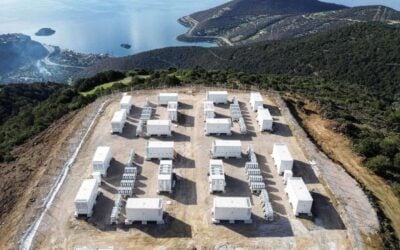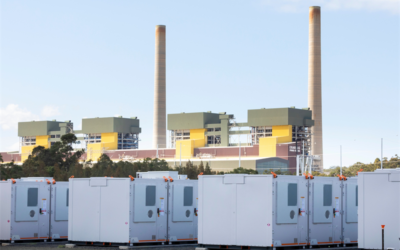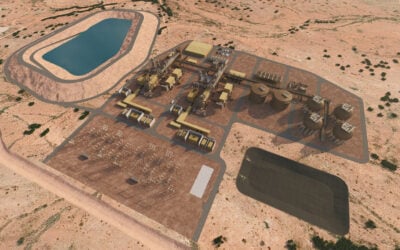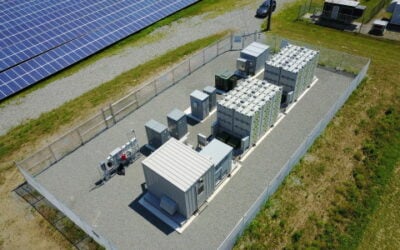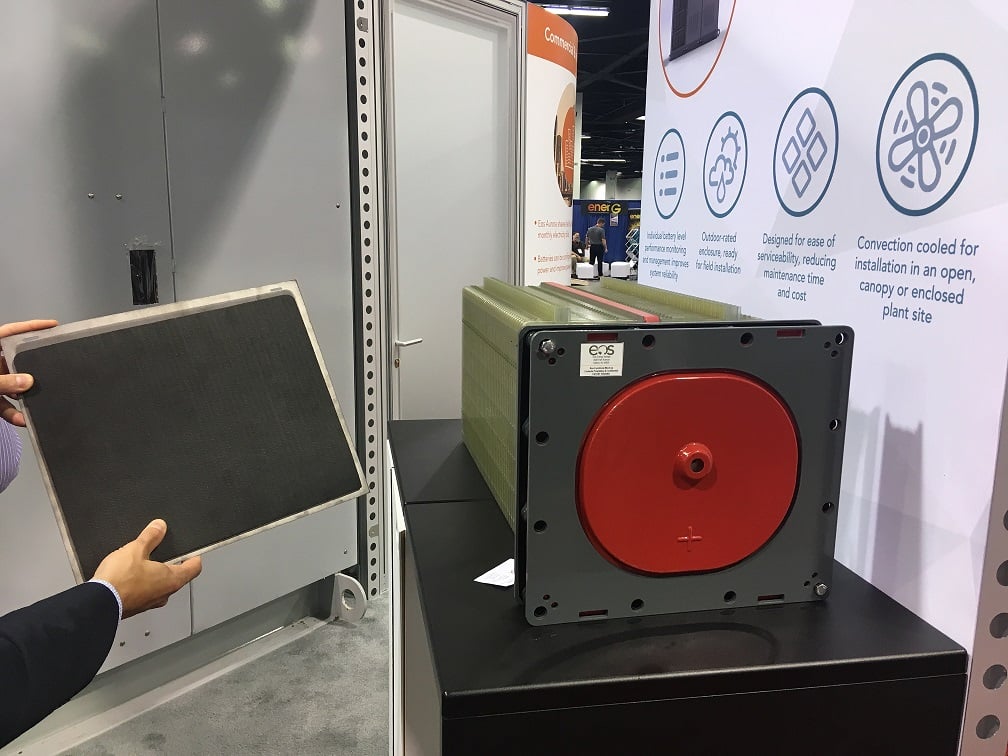
Eos Energy Storage will deploy a megawatt-scale, behind-the-meter zinc hybrid cathode battery energy storage system for a large oil refinery in Greece, claiming it be validation of the safety and environmental benefits of the novel technology.
Corinth Refinery in Athens, the capital of the Southern European country, is one of the largest industrial complexes on the continent. Motor Oil, the plant’s owner, has partnered with New Jersey, US-headquartered Eos Energy Storage via its local subsidiary Motor Oil Hellas, contracting Eos to plan, design and commission a 1MW / 4MWh energy storage system based on its proprietary battery technology.
Eos’ battery, branded the Znyth, is a zinc-hybrid-cathode device which uses a zinc-halide oxidation/reduction cycle to store and output energy, made with bipolar electrodes, injection-moulded plastic frames and an aqueous electrolyte which the company has developed. The company claims its battery is made using only five core components, all of which are abundant and sourced from non-conflict zones as well as being entirely recyclable. With numerous pilots and demonstrations in place including with US utility Duke Energy and a contract to build a 40MWh project for Convergent Energy + Power in California utility Southern California Edison’s service area, in mid-2019, EOS claimed it can deliver its energy storage at around US$160 per kWh for a 4MWh system. Eos has also formed a manufacturing joint venture called HI-POWER, with Holtec International.
As mentioned in this 2019 feature article, the systems are claimed to be suitable for 3-6 hour continuous discharge capability, plating and re-plating zinc to charge and discharge. At the Motor Oil Corinth Refinery in Athens, inverter provider Ingeteam will supply its INGECON BSeries Inverter and Miniskid MV solution as well as an INGECON EMS Plant Controller to form an integrated AC-coupled system.
Try Premium for just $1
- Full premium access for the first month at only $1
- Converts to an annual rate after 30 days unless cancelled
- Cancel anytime during the trial period
Premium Benefits
- Expert industry analysis and interviews
- Digital access to PV Tech Power journal
- Exclusive event discounts
Or get the full Premium subscription right away
Or continue reading this article for free
Ingeteam’s Maria Santa Maria, director of energy storage business development, said that its technology partnership with Eos and Motor Oil is a milestone in working with longer duration energy storage.
“Up until recently, most storage systems were aiming to fulfill a particular grid code requirement, basing their principal functionalities in power services for grid support. Working with Motor Oil’s refinery and Eos’ battery technology marks a new milestone in energy storage, launching a new segment of applications designed for longer duration energy,” Ingeteam’s Maria Santa Maria said.
The energy storage system should help to shave peak demand and enhance grid resiliency of the refinery, as well as improving power quality and lowering costs. Eos claims its battery is more suited to deployment at the site than a lithium battery as Znyth requires no cooling HVAC hardware or controls even at the high Mediterranean climate temperatures. As well as claiming to be capable of full 100% depth of discharge cycling with no impact to degradation, Eos said it has a 15+ year expected life, slightly longer than commonly seen with lithium-ion – although perhaps a few years shorter than a flow battery.
“We consider Eos battery technology as the most competitive and attractive one compared to Li Ion batteries, capable of offering a lot of opportunities in large scale BESS in the future,” Motor Oil Hellas head of electricity business, Vassilis Viziryiannakis said.
Incidentally, at last week’s Energy Storage Digital Series online conference hosted by our publisher Solar Media, US Department of Energy electricity department director of energy storage research Dr Imre Gyuk said long duration energy storage is entirely necessary for decarbonising the grid and needs to be introduced to market through well-designed regulatory frameworks.


